
Disability and Welfare under Monopoly Capitalism
A historical-materialist analysis of the relationship between disability, the body, welfare, and capitalism is needed in order to further develop a Marxist understanding of disability. In this framework, we can see how the British welfare state, given recent changes to British disability policy, determines who is able-bodied and who is disabled, with this evaluation made in regard to the needs of monopoly capitalism. | more…

A Portrait of Gil Green
Gil Green was a revolutionary who became J. Edgar Hoover’s “most wanted man in America” until voluntarily surrendering to authorities in February 1956. He lived a life of integrity and courage. | more…
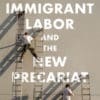
Fighting the “Immigrant Threat” Narrative
Ruth Milkman’s latest book is a strong scholarly response to the “immigrant threat” narrative that has been central to U.S. politics in the last decades. In Immigrant Labor and the New Precariat, the distinguished labor and migration scholar has a clear goal: to reframe the conversation about migration and increased inequality in the United States, reversing the causal relation that blames migration for the U.S. working class’s current perils. | more…

Standing with Standing Rock, Then and Now
The story of the Indigenous movement to stop the Dakota Access Pipeline in 2016 and 2017 has been the subject of numerous articles and documentaries, many of which depict it mainly as an environmental and climate justice campaign to stop the pipeline from crossing the Mni Sose (Missouri River), just north of the Standing Rock Sioux Reservation in North Dakota. Nick Estes and Jaskiran Dhillon’s edited collection Standing with Standing Rock tells a richer and more complex story of decolonization and indigenization from the frontlines. | more…

The great denial
A new poem by Marge Piercy. | more…
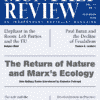
December 2020 (Volume 72, Number 7)
The United States is now in a New Cold War with Russia and China, with the focus increasingly on the latter and involving a direct challenge to U.S. hegemony over the world economy. | more…

The Return of Nature and Marx’s Ecology
In an interview with Alejandro Pedregal, John Bellamy Foster tells us about the paths great ecosocialist thinkers traveled, the most prominent debates in current Marxist ecological thought, and the urgent need for a project that transcends the conditions that threaten the existence of our planet today. | more…
The Elephant in the Room
European left parties have, over the last couple of decades, become increasingly critical of political developments in the European Union, particularly as a response to the austerity policies that followed the financial crisis of 2007–08 and the subsequent euro crisis. These were accompanied by high and sustained unemployment and promises of a social pillar that never materialized. Nevertheless, even if criticism of the European Union has sharpened, this has not been well reflected in the political strategies of the left. | more…
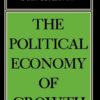
Paul Baran’s Economic Surplus Concept, the Baran Ratio, and the Decline of Feudalism
Recently published and estimated historical data illustrate that economic surplus declined during the thirteenth and fourteenth centuries in England, helping explain the “crisis of feudalism” that started in the thirteenth century. It was not until several centuries later, when capitalism became the dominant economic system, that the economic surplus began to rise on a consistent basis, due to the reinvestment of a portion of the surplus into productive activities, a greater ratio of capital income to rental income, and a greater ratio of investment to economic surplus. | more…
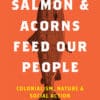
Decolonization in Practice
Fundamental to Kari Marie Norgaard’s Salmon and Acorns Feed Our People is the seizure of land most evident in the overtly violent era of state-sanctioned frontier genocide and forced relocation of the Karuk. Settler colonialism, Norgaard reminds us, is an ongoing state-led project up to this day—it is not just a moment relegated to the past and, thus, the inherent treatment of Native Americans as relics of U.S. history must be challenged. | more…
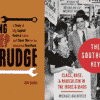
The Left and the Class Struggle
Both Toni Gilpin’s The Long Deep Grudge and Michael Goldfield’s The Southern Key offer ample evidence that the grand era of U.S. labor history scholarship is not yet past. The Long Deep Grudge is in equal parts labor history and family reminiscence as Gilpin seeks the fuller story of her father, who played a leadership role in the United Auto Workers union. The Southern Key is in many ways a study of a different variety, but very much of a similarly militant kind. Goldfield, a labor activist veteran himself, draws the big picture of what he sees as the central failure of the U.S. left: the failure to organize the South. | more…
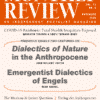
November 2020 (Volume 72, Number 6)
In this issue of Monthly Review, we publish two articles marking the two-hundredth anniversary of the birth of Frederick Engels. In the attempt to address our planet’s ecological crisis, Engels’s work has once acquired a renewed importance. His analysis of the dialectics of nature was to play a formative role in the development of modern ecological and evolutionary views and is now being rediscovered in that context. | more…

Engels’s Dialectics of Nature in the Anthropocene
Today, two hundred years after his birth, Frederick Engels can be seen as one of the foundational ecological thinkers of modern times. Engels’s contributions to our understanding of the overall ecological problem remain indispensable, rooted in his own deep inquiries into nature’s universal metabolism. It is because of the very comprehensiveness of his approach to the dialectic of nature and society that Engels’s work can help clarify the momentous challenges facing humanity in the Anthropocene epoch and the current age of planetary ecological crisis. | more…